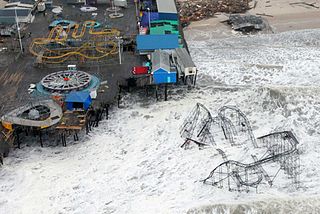Yotam Maron, writing in YES! magazine, has a frank and interesting piece describing his own resistance to accepting climate change.

It is hard for many scientists to understand why so many citizens resist understanding the reality of climate change. If you’re a scientist and want to know more about a particular scientific topic, you grab a score of the most recent peer-reviewed publications on the issue. You read a stack of papers, you read a stack of books. In this world of verifiable information, if a claim has solid data to back it up, if results are reproducible by independent researchers, if double-blind studies return the same result over and over—then you can start to form conclusions (though always holding those conclusions as tentative, subject to new research). The implications of these conclusions should not affect your comprehension of the conclusions. If the implications of climate change may be frightening or demoralizing, that doesn’t undermine the validity of the science, any more than the horrors of Hiroshima undermine the physics of the atomic bomb.
But this is not how many people think. Scientists are learning that information alone does not convince—in fact, information alone may have the opposite effect.
Maron writes that a steady “biblical cocktail of hurricanes, floods, famines, wars” made him feel an “Armageddon Complex”:
...my own denial was a product of it. I spun all sorts of stories to keep the climate crisis out of my life, ranging anywhere from “it can’t be that bad” to “if it is that bad, there’s nothing I can do about it"
A turning point for Maron, as for many other people, was Hurricane Sandy. “It wasn’t really until I was standing on the west side of Hoboken, N.J.,” Maron writes, “in water and oil up to my thigh, that climate change really made sense.”
People are capable of pushing through denial to acceptance, but it often takes a traumatic moment—such as Hurricane Sandy—to achieve this mental shift. Fortunately, we have not yet experienced the climate equivalent of 9/11; the climate wakeup calls have been local, not global. People hear a lot about dramatic climate shifts elsewhere, but for the most part they don’t see it in their own lives.
Where I live, in the San Francisco Bay Area, I can see that the ocean level now is pretty much the same as it was when I was a child; no major landmarks have yet been submerged. The weather also hasn’t changed much. Maybe there’s been less rainfall of late, but El Nino-driven cycles of drought/drenching are the California norm in a state characterized by precipitation extremes.
Alarming information about an impending climate catastrophe therefore strikes some people as disconnected from their personal experiences. That’s one reason why doom & gloom news about climate can be so easily dismissed.
This raises the issue of how scientists should communicate climate science to the public. If we frighten the public, do we just create more denialism? Are we making the problem of denialism worse by presenting the scary truth? One impulse may be to downplay the worst implications of climate change to avoid frightening citizens into the kind of climate denial Maron described. Withhold alarming information, this hypothetical argument might go, until people are psychologically ready; release selective information, but be cautious of overwhelming with bad news.
I think this would be a mistake.
Citizens deserve to get the fullest, most-accurate information possible from the scientific community, and the scientific community has a responsibility to research and promulgate this information—even if this, as in Maron’s case, contributes to some people being unable to cope with what they hear, and emotionally rejecting the hard data.
Some topics simply are scary. Climate change qualifies, as does the spread of multiple drug resistant organisms, and the potential for a 1918-style influenza pandemic. (Not the least of my deepest fears is the spreading influence of the Kardashians.) While such disturbing news may create rejection of the science for some, in time people will, like Maron, push through the fear and denial into acceptance of the truth about climate change.
